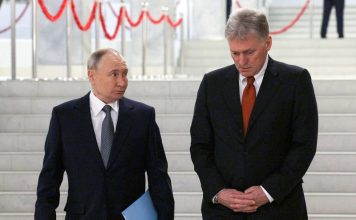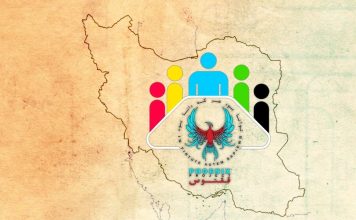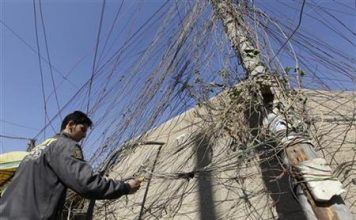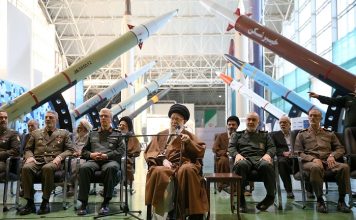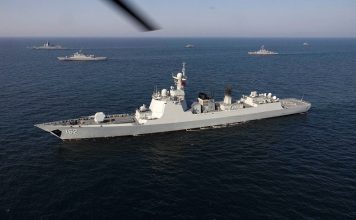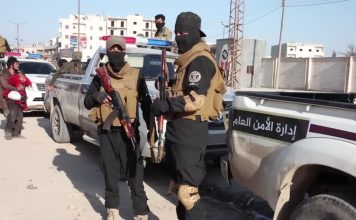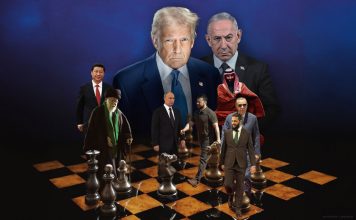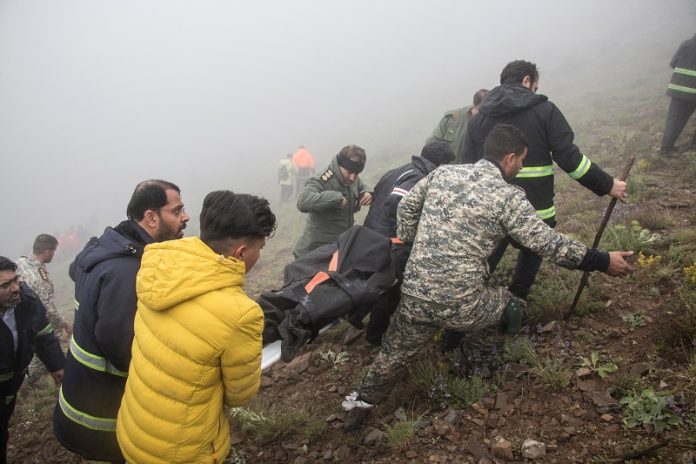
By Parisa Hafezi and Yomna Ehab
DUBAI, May 20 (Reuters) – Iranian President Ebrahim Raisi, a hardliner seen as a potential successor to Supreme Leader Ayatollah Ali Khamenei, was killed when his helicopter crashed in poor weather in mountains near the Azerbaijan border, officials and state media said on Monday.
The charred wreckage of the helicopter which crashed on Sunday carrying Raisi, Foreign Minister Hossein Amirabdollahian and six other passengers and crew was found early on Monday after an overnight search in blizzard conditions.
Supreme Leader Khamenei, who holds ultimate power with a final say on foreign policy and Iran‘s nuclear programme, said First Vice President Mohammad Mokhber, would take over as interim president, the official IRNA news agency reported.
“I announce five days of public mourning and offer my condolences to the dear people of Iran,” Khamenei said in a statement. Mokhber, like Raisi, is seen as close to Khamenei.
Who Is Mohammad Mokhber, the Man Set to Become Iran’s Interim President?
The crash comes at a time of growing dissent within Iran over an array of political, social and economic crises. Iran‘s clerical rulers face international pressure over Tehran’s disputed nuclear programme and its deepening military ties with Russia during the war in Ukraine.
Since Iran‘s ally Hamas attacked Israel on Oct. 7, provoking Israel’s assault on Gaza, conflagrations involving Iran-aligned groups have erupted throughout the Middle East.
A long “shadow war” between Iran and Israel broke into the open last month with tit-for-tat exchanges of drone and missile fire.
An Israeli official, who requested anonymity, told Reuters it was not involved in the crash. U.S. Defense Secretary Lloyd Austin said he had no insight into the cause of the crash, adding the United States had no part to play in it.
Under the Islamic Republic’s constitution, a new presidential election must be held within 50 days.
Any candidate must first be vetted by the Guardian Council, a hardline watchdog that has often disqualified even prominent conservative and moderate officials, meaning the overall thrust of Iranian policy would be unlikely to change.
“As Iran selects a new president, we reaffirm our support for the Iranian people and their struggle for human rights and fundamental freedoms,” State Department spokesperson Matthew Miller said as the U.S. expressed its “official condolences”.
Reactions to the Death of Iran’s President in a Helicopter Crash
‘ONE HARDLINER DIES, ANOTHER TAKES OVER’
Government loyalists packed into mosques and squares to pray for Raisi, but most shops remained open and the authorities made little effort to interrupt ordinary life.
“He was a hard working president. His legacy will endure as long as we are alive,” said Mohammad Hossein Zarrabi, 28, a member of the volunteer Basij religious militia in the holy Shi’ite city of Qom.
But other Iranians showed little sorrow.
“Who cares. One hardliner dies, another takes over and our misery continues,” said Reza, 47, a shopkeeper in the central desert city of Yazd who did not give his full name, fearing reprisals. “We’re too busy with economic and social issues to worry about such news.”
State media reported that images from the site showed the U.S.-made Bell 212 helicopter slammed into a mountain peak, although there was no official word on the cause of the crash. The dead also included the governor of East Azerbaijan Province and a senior imam from Tabriz city.
Iran was a major buyer of Bell helicopters under the U.S.-backed Shah before the 1979 Islamic revolution, though the exact origin of the aircraft that crashed was not clear. Decades of sanctions have made it hard for Iran to obtain parts or upgrade its aircraft.
The helicopter went down in Varzeqan region north of Tabriz, as Raisi returned from an official visit to the border with Azerbaijan, in Iran‘s northwest, to inaugurate the Qiz-Qalasi Dam, a joint project.
ANALYSIS: Hamid Nouri’s Life Sentence Is A Condemnation of Iran
BLOODY CRACKDOWN
Since taking office, Raisi, 63, had ordered a tightening of morality laws, oversaw a bloody crackdown on anti-government protests and pushed hard in nuclear talks with world powers.
In Iran‘s dual political system, split between the clerical establishment and the government, it is Raisi’s 85-year-old mentor Khamenei, supreme leader since 1989, who holds decision-making power on all major policies.
Raisi’s victory in a closely managed election in 2021 brought all branches of power under the control of hardliners, after eight years when the presidency had been held by pragmatist Hassan Rouhani and a nuclear deal negotiated with powers including Washington.
However, Raisi’s standing may have been dented by the widespread protests against clerical rule following the death of 22-year-old Kurdish woman Mahsa Amini in morality police custody, and a failure to turn around Iran‘s economy, hamstrung by Western sanctions.
Though far from being a foregone conclusion in Iran‘s opaque politics, Raisi, a middle-ranking Shi’ite cleric, had been widely seen as a leading candidate to succeed Khamenei.
“There’s no other candidate right now (with) that kind of a platform and that’s why the presidential elections in Iran, however they unfold, will be the first decider about what comes next,” said Vali Nasr, professor of Middle East Studies and International Affairs at John Hopkins School of Advanced International Studies.
Amnesty Calls for Investigation into Iran’s Raisi for Crimes against Humanity
Deputy Foreign Minister Ali Bagheri Kani was appointed as acting foreign minister, IRNA said.
Saudi Arabia’s foreign minister called Kani to express condolences and reiterated Saudi’s support for Iran.
Messages of condolences flooded in from Iran‘s other regional neighbours and allies, including the leaders of Syria, Egypt, the United Arab Emirates, Qatar, Jordan, Iraq and Pakistan.
Russian President Vladimir Putin called Raisi “a true friend of Russia”. The Kremlin said he had spoken to Mokhber by phone and both stressed “mutual intention to further strengthen Russian-Iranian interaction”.
Iran-backed militant group Hamas, fighting Israeli forces in Gaza with Tehran’s support, issued a statement expressing sympathy to the Iranian people for “this immense loss”.
(Reporting by Parisa Hafezi in Dubai and Yomma Ehab in Cairo; Writing by Stephen Coates and Alex Richardson; Editing by Lincoln Feast, Sharon Singleton and Alison Williams)

